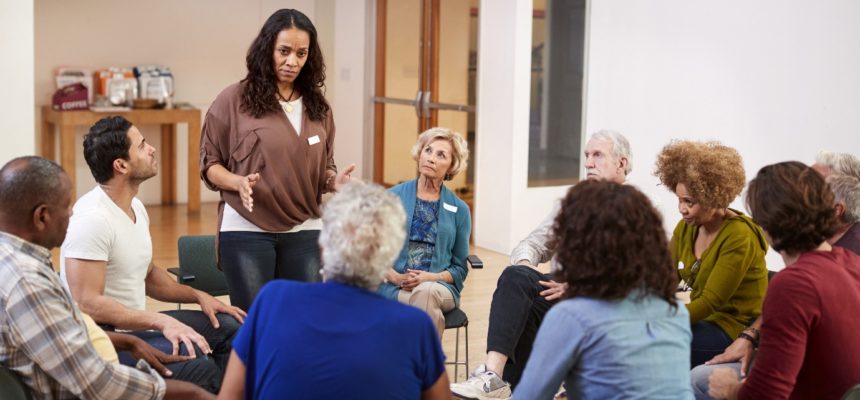
The Importance of Group Therapy in Recovery
Kicking an addiction is a great achievement. But great as it is, it’s only half the battle won. Staying clean is as much a battle as kicking the habit.
That’s why group therapy is so important.
Group therapy and the experiential group therapy activities often involved are a mainstay for those who desire to overcome substance abuse forever.
What Is Group Therapy?
Group therapy is a form of counseling that involves regular sessions where a trained substance abuse counselor works with several individuals being treated for the same problem. It has been proven to be highly effective in treating psychological disorders, including substance abuse and addiction.1
Group therapy may be offered in several different settings that include:
- Residential inpatient treatment
- Intensive outpatient programs
- Private practice settings
- Mental health clinics
- Community centers
- Hospitals
Be careful not to confuse support groups like Alcoholics Anonymous with group therapy, as unlike group therapy, support groups usually aren’t facilitated by a trained substance abuse counselor. They are an important part of the recovery process but shouldn’t replace group therapy.
So why is group therapy so important?
3 Reasons Group Therapy Is Important to a Successful Recovery
Addiction treatment often involves individual and family therapy, but is there anything about group therapy that makes it so effective in its own right?
Certainly!
Here are 3 reasons group therapy is important for individuals seeking to overcome substance abuse:
1. Addiction Is More than Dependence on Substances
Addiction is a deep-rooted disease that transcends physical dependence on substances. Even after you’re clean and your body is no longer hooked, the risk of relapse is still high. This is because some psychological and social factors can be powerful triggers that lead to relapse. Examples include:
- Stress
- Cues in the environment (like a certain sound, smell, or sight)
- Social networks (spending time with friends who still use)
Failure to understand and know how to handle these triggers can lead to relapsing. This is one reason why group therapy is so important – the counseling sessions equip you with the knowledge you need to overcome cravings and know how to handle your substance abuse triggers while discussing these pitfalls and fears among your peers.
2. Human Beings Are Social Creatures
It is human nature to socialize – to share and learn from each other.
What does this have to do with overcoming addiction?
A whole lot!
Due to our social nature, we tend to find encouragement, support, and inspiration from others who are going through or have gone through what we’re going through. And that is exactly what group therapy offers. Being in a group challenges you to put in the effort needed to overcome the obstacles on the path to total recovery.
3. Focuses on New Shared Experiences
Another reason group therapy is so effective is that it can tie in experiential therapy. This is a form of therapy that focuses on experiences. Experiential therapy serves many therapeutic purposes that include:
- Exploring difficult topics
- Stimulating personal growth
- Improving skills
- Calming anxiety
Experiential group therapy activities – such as hiking, sports, music, dance, gardening, etc. – can even be used just to help individuals have fun and get their bodies moving, which is a form of therapy in itself.

Group Therapy – Coming Together
Peer support is a critical aspect of success in life. When it comes to overcoming addiction, its importance can’t be overemphasized. This is why group therapy and support groups are avenues everyone on the road to recovery should explore. If you want to find out more, be sure to give us a call on (888) 418-4188.
Sources








